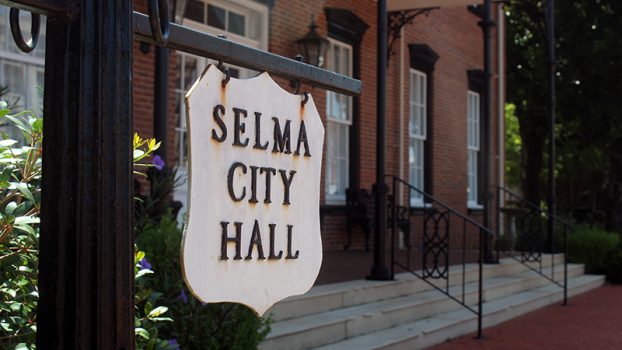Alabama city’s services down to ‘nearly nothing’ as employee ‘sickout’ nears third week with no end in sight
Published 8:06 am Friday, October 18, 2019
A “sickout” by an Alabama city’s workers has ground its services and departments to a halt for nearly three weeks with no clear end in sight.
The protest began only days after the Selma City Council delayed passage of Selma Mayor Darrio Melton’s proposed budget.
No action has been taken to end the strike and the two sides appear no closer to an agreement than they were when the protest began.
While a handful of city offices were initially shuttered due to the “sickout,” it is currently unclear which departments remained closed aside from the City of Selma Public Works Department, which is the department tasked with overseeing garbage services in the city.
Even that department’s closure isn’t certain – according to Selma City Treasurer Ronita Wade, workers in the City of Selma Tax and License Department, which was closed in the early days of the strike and caused many citizens looking to pay taxes to be turned away, were on the job Thursday “playing catch-up.”
Additionally, Wade received an email from City of Selma Public Works Department Director Steven Hendrieth requesting that an employee be allowed to collect his paycheck early because he would not be at work Friday.
Multiple council members have placed the blame for the “sick out” squarely at Melton’s feet, including Selma City Councilwoman Jannie Thomas, who said that she has driven around town and noticed the absence of workers, as well as the amount of trash piling up throughout the city.
“The mayor caused the ‘sickout,’” Thomas said. “He’s over day-to-day operations, so he had to approve that time off. When you don’t have day-to-day operations keeping your city up…[Melton] wants it to go down.”
Thomas noted that the city continues to pay a monthly lease on trucks for the City of Selma Public Works Department that are now sitting dormant, rather than being put to use to keep the city clean.
“It’s bad service to our taxpayers,” said Selma City Councilman Sam Randolph. “It’s just not fair for our citizens to have to go through this. Taxpayers still have to pay their taxes…it’s just not right.”
For his part, Randolph believes the striking workers should be forced to produce a doctor’s excuse for the time away from the job or face termination and took exception with the fact that workers would demand a pay raise and then walk off the job.
“It just doesn’t make sense,” Randolph said. “You want a pay raise, but you don’t want to work? If you really want a pay raise, you’ll come to work and let people see you out there working. The employees that are laid-off are still laid-off – why don’t we bring those people back? How can you justify a pay raise and we still have so many people laid-off? That’s just selfish.”
Similarly, Selma City Councilman Carl Bowline would like to see workers back on the job, but he noted that there has been no movement on the part of the council to address the striking workers’ demands – thus far, no meetings have been scheduled to further mull the city’s budget and the council has received minimal guidance on how it can best address the issue.
“I want our workers back,” Bowline said. “I want our trash to be picked up. We need our stuff being taken care of because our city’s falling apart a little more every day.”
Bowline said he hopes to tackle the issue without mudslinging, noting that portions of Melton’s budget were agreeable and other portions simply needed to be adjusted and that putting the two sides further at odds with one another only hinders progress.
Selma City Council President Pro Tem Angela Benjamin is concerned about the halt in city services for a number of reasons and has been informed by an unnamed city worker that the strike actions “was ordered, not voluntary.”
“I am concerned that this event is costing our communities gravely,” Benjamin said. “Services were already cut to a bare minimum, now they are down to nearly nothing.”
Along with being concerned with the slashing of city services and the possibility that the “sickout” was undertaken because of a directive handed down by leadership, Benjamin also worries that those who have taken part in the action may face unexpected consequences.
“This can possibly also cost the employees who are participating, as many may not have enough vacation or sick days left to continue on with this, whether ordered or voluntary,” Benjamin said. “Any that fall under the council’s appointment authority can face other lawful penalties if they render themselves no longer willing to serve in the capacity appointed by the council.”
None of the other five members of the Selma City Council or Melton responded to requests for comment.




